2025
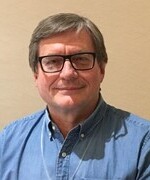 Prof. Vladimir Romanovsky Prof. Vladimir Romanovsky
For his exceptional and sustained contributions to Arctic science, particularly in the field of permafrost research. Over nearly four decades, Professor Romanovsky has been a leading figure in advancing permafrost science and modeling, significantly enhancing our understanding of permafrost's role in Arctic systems.
His dedication to national and international collaboration has been instrumental in conducting permafrost geophysical research. By providing free and open access to data, he has facilitated the monitoring of temperatures across an extensive network of boreholes, including over 150 sites in Alaska and 168 additional sites in Canada, Greenland, Russia, Kazakhstan, and Mongolia. These efforts have been crucial in climate change research, particularly in geomorphology, soils, hydrology, and vegetation, improving our understanding of permafrost degradation and carbon dynamics. Entering Arctic science in the early 1990s, Professor Romanovsky's work came at a pivotal time when the significance of permafrost in global system dynamics was becoming evident. His prolific output includes over 300 publications and reports, amassing more than 40,000 citations and an h-index of 91. His research has provided essential insights into Arctic-system evolution, hydrological dynamics, and infrastructure design, demonstrating extensive cooperation with researchers worldwide, including those in Russia and China. Professor Romanovsky's impact extends beyond his publications. He has mentored numerous students and postdoctoral fellows, chaired over 20 graduate advisory committees, and supported 11 postdocs and visiting fellows. His contributions to the IASC include serving on the U.S. Delegation (2014-2022) and the IASC Terrestrial Working Group (Vice Chair 2017-2021). His greatest contributions lie in his sustained efforts to compile, synthesize, model, and share long-term permafrost data from the circumpolar Arctic and subarctic, and his spirit of international collaboration. His data and process understanding have been incorporated into numerous environmental models, influencing studies on carbon flux, climate change, and ecosystem dynamics. His work is highlighted in the 2024 U.S. Environmental Protection Agency report on Climate Change and by his most recent contributions to the 2025 ICARP IV Summit. As a permafrost ambassador, Professor Romanovsky is involved in nearly every international initiative related to permafrost, the Arctic, and climate change. His engagement in these activities and his role in fostering cooperation between Western and Russian scientists underscore his international credentials and experience. He currently serves as the U.S. delegate to the International Science Initiative in the Russian Arctic (ISIRA), critical for future circumarctic cooperation. In summary, Professor Romanovsky's legacy will continue to influence polar research for generations. His collective achievements make him a deserving recipient of the 2025 IASC Medal.
IASC would like to thank the 2024 IASC Medal Committee for their services: Mark Inall (United Kingdom) (MWG) – Chair, Guðrún Nína Petersen (Iceland) (AWG), Robbie Mallett (Norway) (CWG) (Fellow), Annette Scheepstra (The Netherlands) (SHWG), and Xiaofan Yang (China) (TWG).
|
2024
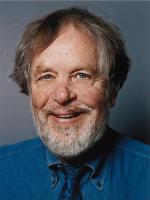 Dr. James Overland Dr. James Overland
Outstanding long-lasting achievements to improve interdisciplinary knowledge, particularly on the linkages between changes in the Arctic and the weather in mid-latitudes, as well as ensuring this information becomes widely available through his ability to present complex information in an accessible way and his critical role in the formation of the IASC Atmosphere Working Group.
Dr. Overland has been an active and world-leading contributor to Arctic research for more than 50 years. His early contributions in the 1970s and 1980s emphasized climate and sea ice variability in the Pacific sector of the Arctic. In the 1990s these contributions broadened to encompass impacts on Arctic marine ecosystems, including marine mammals. During the last decades, he has addressed pan-Arctic climate variations and trends and placed Arctic climate change into a global context with new knowledge on the Arctic Amplification and the Arctic-midlatitude linkages. Through his work on linkages, he has opened the eyes of politicians and the general public around the world to understand that what happens in the Arctic not only impact the Arctic system and its people, but that it has a huge impact on the rest of the world as well.
In addition to being an outstanding scientist, Dr. Overland has also provided outstanding service to the international community for many decades. He has been a lead author in both regional (e.g. SWIPA 2017) and global climate change assessment reports (e.g. IPCC AR5). He organized the IASC Atmospheric Working Group and served as a chair for six years. He also contributed to the initiation of MOSAiC, together with M. Tjernström (Sweden) and K. Dethloff (Germany), laying out the importance of multi-seasonal observations.
Through his excellent communication skills, he has brought scientific knowledge to broad audiences. His long-term dedication to the Arctic community and exceptional scientific work have provided significant inputs and will continue to contribute to understanding the Arctic in a global context through the legacy of his work.
IASC would like to thank the 2024 IASC Medal Committee for their services: Margareta Johansson (Chair) (CWG), Sergi Pla-Rabes (TWG), Muyin Wang (AWG), Mark Inall (MWG and Alison Perrin (SHWG, IASC Fellow).
|
2024
 Prof. Dr. Markus Rex, Dr. Matthew Shupe and Prof. Dr. Klaus Dethloff Prof. Dr. Markus Rex, Dr. Matthew Shupe and Prof. Dr. Klaus Dethloff
IASC Award for Service
The Executive Committee of the International Arctic Science Committee (IASC) is delighted to present Prof. Dr. Markus Rex, Dr. Matthew Shupe and Prof. Dr. Klaus Dethloff with its Award for Service for outstanding achievements in planning and executing the unique international Arctic Ocean program Multidisciplinary drifting Observatory for the Study of Arctic Climate (MOSAiC) which is fundamental for our understanding of the Arctic and which will serve the international community with new data that was not previously possible to access. Involving several hundred researchers from 20 nations, MOSAiC was the largest and most ambitious Arctic expedition ever undertaken. The mission and success of MOSAiC would not have been possible without the vision, leadership, and decade-long committed work of these three individuals. MOSAiC’s goal was to undertake the first full annual cycle of in-situ observations of properties, processes, and interactions between coupled aspects of the Arctic system. The expedition was centered on the comprehensively equipped Polarstern research icebreaker as the primary measurement platform, which drifted 3,400 km between September 2019 and October 2020. This expedition allowed an unprecedented comprehensive dataset to be obtained, providing the first observational constraint on many aspects of the coupled Arctic system, particularly during winter. These data will allow the international science community to address real grand challenges in our ability to predict and respond to the threat of climate change, both in the Arctic and more widely. As of October 2023, more than 90 scientific papers have been published as a result of the expedition and more are in the pipeline. The successful execution and completion of MOSAiC has produced an immense force for Arctic science globally. The expected legacy of the expedition will continue to grow over time. The achievements of the three awardees in ensuring the realization and success of the MOSAiC programme, developed under the umbrella of IASC, are unparalleled in their contributions to Arctic science, international cooperation, and community leadership.
|
2023
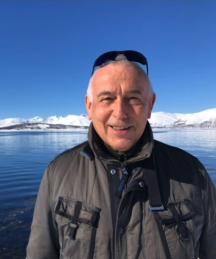 Paul Friedrich Wassmann Paul Friedrich Wassmann
Outstanding long-lasting achievements to improve the knowledge of the ecology of the Arctic Ocean and the ability to combine excellent science and holistic drive to bring together various disciplines
Professor Paul Wassmann was selected for his scientific expertise and exceptional and sustained contributions to understanding the Arctic Ocean and for his ability to bring together various disciplines and nationalities to tackle scientific issues that are far too vast and complex for investigation by an individual scientist.
Prof. Wassmann has worked and served the Arctic research community for nearly five decades. He is a singular individual who has truly shaped the direction of international Arctic science. His dedication and passion led Arctic science from regional and discipline-oriented studies to a fully pan-Arctic and interdisciplinary perspective. Besides being very active in publishing his research, he has initiated and led multiple programs and projects and has organized numerous science conference sessions, symposia and workshops. His broad topics of interest have been critical to shaping a new generation of scientists. One example for his continuous efforts to educate prospective scientists is the ARCTOS PhD school “Arctic ecosystems, biogeochemical cycles and climatic change in the Anthropocene” of which he was the Director from 2004-to 2014. He also brought scientific knowledge to broad audiences through exceptional interdisciplinary science communication.
His long-term dedication to the Arctic community and exceptional work has provided significant inputs —and will continue to provide, through the multiple generations of students and post-docs he mentored— to a holistic understanding of the Arctic.
IASC would like to thank the 2023 IASC Medal Committee for their services: Monika Kędra (MWG) (Chair), Margareta Johansson (CWG), Sergi Pla-Rabes (TWG), Muyin Wang (AWG) and Silja Zimmermann (IASC-SDWG Fellow).
|
2023
 Robert W. Corell Robert W. Corell
IASC Award for Service
The honour recognises his life-long scientific contributions to the understanding of global change and the interface between science and public policy, particularly those research activities that are focused on the science of global and regional climate change in the Arctic region, as well as for the promotion of Arctic research in general through his dedicated, inspiring and successful mentorship and leadership.
Dr Corell has been visiting and working in the Arctic for more than 50 years. His research is of exceptional quality, depth and relevance and has resulted in an extensive list of publications, awards and wider recognition. He has been one the pioneers of climate change science on global and regional scales and has made great strides in making genuine and impactful connections between science and public policy. He has led important workstreams within the Arctic Council, in particular the influential Arctic Climate Impact Assessment reports, as well as work for UNEP, the IPCC and many others. This leadership has had a long-lasting and positive impact on the understanding of the change in the Arctic and connections with global environmental systems. This Award especially recognises his close involvement in the preparatory work in the late 1980s to lay the ground for the creation of IASC. That careful work and his subsequent involvement have helped create a long-lasting and successful organisation. As the Chair of the IASC Regional Board and of the ICARP II process Dr Corell introduced new multi-disciplinary approaches and made great strides in ensuring broader consultation and engagement in decision making. In this Award the Executive Committee also recognise the important leadership role he has played in supporting and inspiring the next generations of researchers. His work as a champion and enabler of early career researchers, of support for the inclusion of diverse Arctic voices and in particular his support in the creation of APECS have all made an enormous contribution. His generous investment of time, skill and enthusiasm in the scientists who come after has been an inspiration to the wider research community. Dr Corell now joins a very select group of Arctic specialists to receive the IASC Award for Service. Odd Rogne, former IASC Executive Secretary, received the first award in 2015.
The IASC Executive Committee expresses its deep gratitude to Dr Corell for his exceptional and sustained contributions to the understanding of the Arctic, his support to the long-term success of IASC and to better connecting the worlds of science and public policy. At a time when international cooperation in Arctic research has never been more urgent or relevant his life-long service is an example to follow. Many congratulations to Dr Robert Correll on his IASC Award for Service.
|
2022
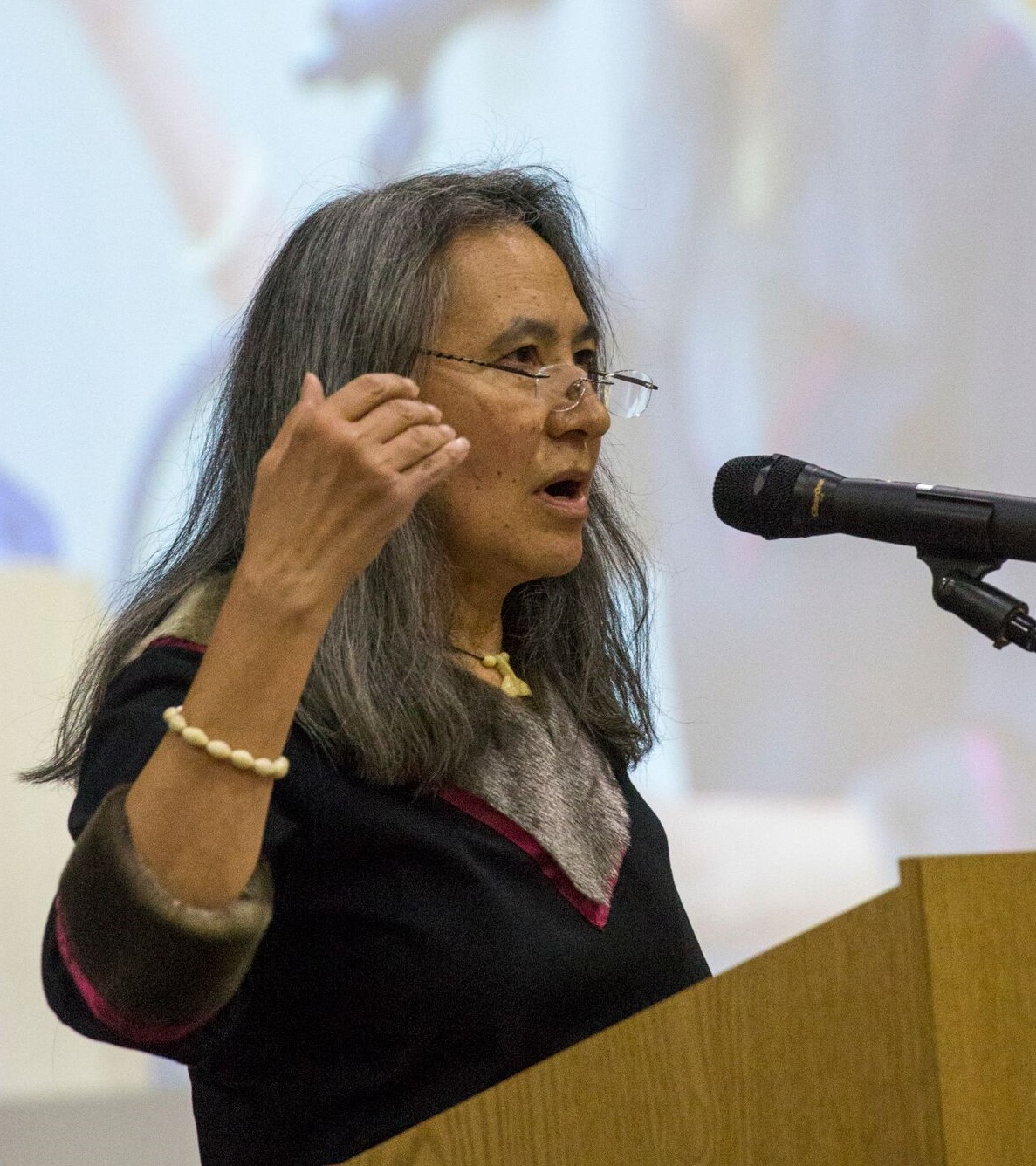 Dalee Sambo Dorough Dalee Sambo Dorough
Outstanding achievements in advocacy for the rights of Indigenous peoples, her service to a wide range of arctic communities, including the Arctic Council, and her influence as a legal scholar.
Professor Dalee Sambo Dorough was selected for her scientific expertise and advancement of the rights of Indigenous peoples and for her exceptional contributions in advancing research on public international law, international organizations, and human rights. She has worked as a scholar, as an advisor to international organizations, and, since 2018, as leader of the Inuit Circumpolar Council (ICC), which represents approximately 180,000 Inuit from Canada, Greenland, Russia and the United States on the Arctic Council.
A distinguishing career feature is her sustained record of working practically to implement the results of her research. Years of legal studies and policy research by Dr Dorough have contributed to key changes in how the rights of Indigenous peoples are viewed worldwide. Her contribution to the development of the UN Declaration on the Rights of Indigenous People (UNDRIP) and its subsequent implementation exemplifies her global influence and her impact on Indigenous people across the planet, and her own cultural affiliations and arctic scholarship credentials have brought the Indigenous peoples of the Arctic into greater global focus. Dr Dorough has given numerous presentations on law and policy affecting the Arctic to international and national fora; her publications span peer-reviewed articles and book chapters, edited volumes, and high-impact reports directed towards a range of national and international bodies. They include the Routledge Handbook of Indigenous Peoples in the Arctic, published in 2021, which she co-edited, and major contributions to landmark policy-relevant publications, such as the Arctic Human Development Report and International Law Association studies on the rights of Indigenous Peoples.
Dr Dorough’s exceptional work has provided—and will continue to provide—outstanding guidance for gaining greater equality and recognizing diversity across arctic communities. It stands as an inspiration for several generations of Indigenous and non-Indigenous scholars and leaders in the social sciences and beyond.
IASC would like to thank this year’s Medal Committee for their service: Mary Edwards (Chair), J. Otto Habeck, Yuji Kodama, Monika Kędra and Greta Wells.
|
2021
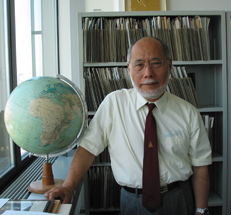 Atsumu Ohmura Atsumu Ohmura
Outstanding achievements in understanding complex climate and glacier relationships, global energy budgets, and thermal energy flow in the Arctic; and for excellence in program building, international collaborations, and mentorship in the cryospheric sciences
Dr. Ohmura has had an enormously influential career in the Arctic sciences, spanning 50 years. His research has encompassed processes over both land and ocean, including the energy and water balance of tundra regions, the energy balance and climate across the Greenland ice sheet, and global radiation budgets, with methodologies ranging from in situ observations, to more theoretical approaches, to the application of climate models. Some of his main accomplishments are contributions to our current understanding of microclimates in the Arctic, including radiative fluxes in polar and alpine regions. In particular, he was one of the first scientists to study and monitor the interaction of solar radiation with snow and ice surfaces. Dr. Ohmura’s work has had broad reach throughout the global climate sciences community as well, where his discovery and contributions to the theory of global dimming, the missing absorption, and global brightening have given great insight and altered our understanding of shortwave and longwave energy fluxes in the global energy balance. Dr. Ohmura has exceptional accomplishments in building observational programs and international collaborations. He initiated the Global Energy Balance Archive (GEBA) in 1986 (and is still operational today) to archive monthly mean instrumental measurements of radiation and other energy fluxes for a wide range of users. His pioneering work in the characterization of radiative processes additionally led to the Baseline Surface Radiation Program, part of the World Climate Research Program (WCRPBSRN), through which over 60 BSRN stations are currently submitting their radiometry data to the World Radiation Monitoring Center. Both the GEBA and WCRP-BSRN would not have been established without Dr. Ohmura’s vision and determination for high-quality radiation and energy balance measurements. Dr. Ohmura has also greatly contributed to international organizations and research cooperation, including serving as a Swiss national delegate to IASC from 1992–2000 (during which he helped to assemble the first IASC working group for Arctic Glaciology). Dr. Ohmura has additionally served important roles within the International Glaciological Society (President, 2005– 2008), International Commission on Polar Meteorology, and the Radiation Panel of WCRP Global Energy and Water Cycle Experiment (GEWEX). He has coordinated numerous joint cryospheric science projects with institutes in the US, Canada, Russia, and Denmark. Lastly, we recognize Dr. Ohmura’s outstanding contributions to mentorship in the cryospheric sciences. He has supervised more than 200 junior scientists from around the world, including 47 Ph.D. students, 147 M.Sc. students, and 25 postdoctoral fellows. Many of these mentees are now professors at distinguished institutions distributed across the globe, taking leading roles themselves in domestic and international research projects, and furthering the boundaries of knowledge of a variety of fields, including the mass balance of the Greenland ice sheet, variability of ice sheets during glacial/interglacial periods, global glacier fluctuations, and satellite remote sensing of polar cryospheric change.
IASC would like to thank this year’s Medal Committee for their service: Karen Frey (Chair), J. Otto Habeck, Mary Edwards, Yuji Kodama, Enooyaq Sudlovenick
|
2020
 Sue E. Moore Sue E. Moore
Outstanding Achievement in Understanding Marine Mammals as Ecosystem Sentinels and how Climate Change is Influencing the Phenology of Arctic Species
Dr. Sue Moore has worked in the Arctic and contributed to Arctic science for over 40 years. During her early career, she concentrated on the ecology of Arctic marine mammals and established the first understanding of cetacean habitat selection in the North American Arctic. Her research on marine mammals as ecosystem sentinels is seminal work that has influenced conclusions on how climate change is influencing the phenology of both Arctic and sub-Arctic species. Dr. Moore’s research transcended and evolved to include an interdisciplinary understanding of Arctic ecosystems that integrates physical oceanography and atmospheric measurements with lower trophic levels. She was involved in creating mitigation scenarios to guard Arctic whales, walruses, and seals from negative impacts associated with commercial shipping and offshore oil and gas development and developing ecosystem scenarios to predict the future Arctic under the “Arctic Marine Pulses” model.
Dr. Moore has served in key roles in the international Arctic community including advisory positions at the International Whaling Commission (IWC), participated in multiple of science panels (including the IASC/SCAR Bipolar Action Group), and played other roles with the US National Science Foundation and the US Marine Mammal Commission. Her work in IWC has supported the rights of indigenous whalers to continue traditional subsistence harvests as part of a larger effort to sustain cultural practices.
Dr. Moore has advised and mentored early (and advanced) career scientists, including numerous women, who are currently working on Arctic issues as scientists and policymakers. She continues her work as a Research Scientist at the University of Washington’s Center for Ecosystem Sentinels. Based on her continuous and extremely productive career examining and understanding how climate change is transforming the Arctic and how these transformations influence trophic levels from phytoplankton to the subsistence culture of Arctic Indigenous Peoples, IASC is honored to award Dr. Sue Moore the 2020 IASC Medal.
IASC would like to thank this year’s Medal Committee for their service: João Canário (Chair), Stanislav Ksenofontov, Guðrún Nína Petersen, and Karen Frey.
|
2019
 Marika Holland Marika Holland
Outstanding Achievement and Scientific Leadership role in Understanding, Modeling and Predicting the Arctic Climate System, in particular Sea Ice
You can watch Dr. Holland's IASC Medal Lecture here.
Dr. Holland is a Senior Scientist in the Climate and Global Dynamics Division of the National Center for Atmospheric Research (NCAR) in the USA. She has in recent decades maintained an outstanding impact on international Arctic research and policy, exploring, among other topics, the coupled interactions between sea ice, atmosphere, ocean, land surface and biosphere. In addition to her excellent record of oral and written contributions, Dr. Holland has been a driver in building an integrated understanding of the Arctic, by connecting climate and Earth system modelers with experimentalists and field observers – as well as connecting the world’s academic research community with the software and model development community. She has also mentored numerous students and early career scientists, many of them women, through Ph.D. committees in Australia, Canada, Sweden, and the U.S., through frequent university course lectures, and as a scientific leader at NCAR. Because of her outreach in the U.S. and internationally, her influence as a female role model in the physical sciences is tremendous. Based on her continuous and extremely productive career with a focus on Arctic Climate System and how it is responding to climate change, IASC is honored to award Dr. Marika Michelle Holland the 2019 IASC Medal.
IASC would like to thank this year’s Medal Committee for their service: Guðfinna Aðalgeirsdóttir (Chair), João Canário, Hiroyuki Enomoto, Manisha Ganeshan, and Heidi Kassens.
|
2018
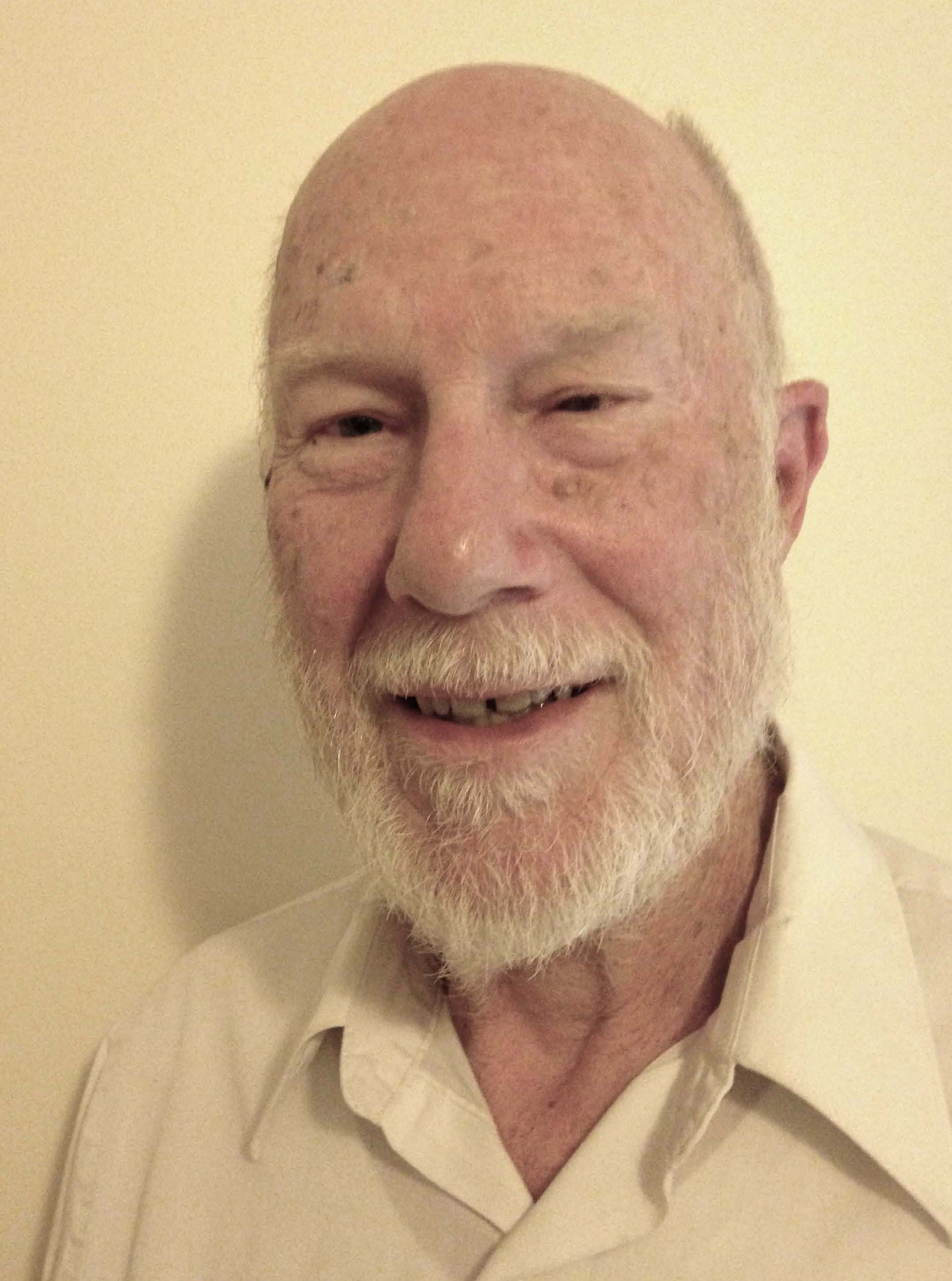 Oran Young Oran Young
Outstanding Achievement in Understanding Arctic Institutional Dynamics, International Regimes, and Environmental Policy
Dr. Young is professor emeritus and co-director of the Program on Governance for Sustainable Development at the Bren School of Environmental Science & Management at the University of California (Santa Barbara). He has an outstanding record of oral and written contributions in Arctic governance and international collaboration, with over 100 articles, multiple dozens of books and book chapters in outlets such as Science, Nature, Foreign Policy, International Organization, World Politics, and Global Environmental Politics. Dr. Young has maintained broad community service including participation as an IASC vice-president from 1994-2000 and sustained advocacy for inclusion of social sciences in multiple organizations towards a holistic approach to Arctic studies. During his esteemed career he facilitated the development of the Arctic Council, the University of the Arctic, and other Arctic governance groups. Oran´s work has had high-level impacts in the Arctic Council, especially through the Sustainable Development Working Group, as well as through involvement in a range of Arctic stakeholders collaborations, communities, and the scientific community. Dr. Young has also mentored over 50 graduate students, including 25 PhD students, and seven post-doctoral scholars. The IASC Medal Committee (Jackie Grebmeier (Chair), Joan Nymand Larsen, Tetsuo Ohata, Allison Fong, and Josef Elster) reviewed the nominations received and came to a unanimous decision. Based on his continuous and extremely productive career focus on Arctic environmental affairs, resource management and international regimes, and the human dimensions of Arctic change, IASC is honored to award Dr. Oran Young the 2018 IASC Medal.
|
2017
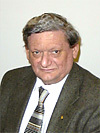 Terry Callaghan Terry Callaghan
Outstanding Contributions to International Arctic Science Collaboration
Professor Terry Callaghan’s research and impressive publication record has focused on Arctic environmental and terrestrial ecosystem processes. However, the IASC Medal Committee (Josef Elster (Chair), Justiina Dahl, Yves Frenot, Jackie Grebmeier, and Joan Nymand Larsen) reviewed the nominations received and unanimously decided it Prof. Callaghan's networking and ability to connect large project teams internationally that has really set him apart. Prof. Callaghan has led and contributed to numerous international scientific syntheses. Through his work in the former Institute of Terrestrial Ecology (part of NERC), by setting up a field base in Ny Ålesund, Svalbard, as the Director of the Royal Swedish Academy of Science’s Abisko Scientific Research Station, and coordinator of the INTERACT network, Prof. Callahan has been instrumental in bringing researchers from around the world to the Arctic. Many scientists realise the value of networking, but it takes a fiery spirit like Prof. Callaghan's to make it happen.
|
2016
 John E. Walsh John E. Walsh
Exceptional Contributions to Modeling and Evaluating Climate Change Impacts in the Arctic
The IASC Medal Committee (David Hik (Chair), Yves Frenot, Jackie Grebmeier, Joan Nymand Larsen, Sivaramakrishnan Rajan) reviewed the nominations received and unanimously decided to honor Dr. John Walsh for exceptional contributions to modeling and evaluating climate change impacts in the Arctic, particularly with regard to his sustained and distinguished contributions to quantitatively improving our understanding of the Arctic, from climate and weather extremes to hydrology, sea ice variability and the human dimensions of climate change impacts; and for his outstanding record of service and leadership to the wider Arctic science, education and policy community.
|
2015
 Jacqueline Grebmeier Jacqueline Grebmeier
Exceptional Contributions to the Understanding of the Arctic
IASC is pleased to announce that the 2015 IASC Medal, which is awarded in recognition of exceptional and sustained contributions to the understanding of the Arctic, goes to Jacqueline Grebmeier. The IASC Medal Committee reviewed the nominations received and unanimously decided to honor Jacqueline Grebmeier for her exceptional contributions to the understanding of Arctic benthic ecology and marine ecosystem dynamics; her pioneering work interpreting geochemical and stable isotope measurements in sediments; her commitment to the establishment of long-term observatories through international collaboration; and her outstanding leadership and mentorship within the Arctic science community.
|
2015
 Odd Rogne Odd Rogne
IASC Award for Service
In light of the 25th Anniversary, IASC decided to – for first the time – present a special IASC Award for Service, recognizing “25 Years of Vision, Dedication and Advancement of Arctic Science”. The IASC Award for Service was presented to IASC ́s former Executive Secretary Odd Rogne, who had been instrumental in the founding process of the organization in the late 1980s and making IASC a leading science organization for the Arctic.
|
2014
 Julian Dowdeswell Julian Dowdeswell
Understanding of Glacier Dynamics and Ocean-Ice Sheet Interactions
The IASC Medal Committee honored Julian Dowdeswell as a World leader in the field of Arctic glaciology, recognizing his outstanding and unique contributions to the understanding of glacier dynamics and ocean - ice sheet interactions. The committee also highlighted Julian Dowdeswell´s outreach and communication activities which have been instrumental for public understanding of Arctic change.
|
2013
 Leif G. Anderson Leif G. Anderson
Understanding the Arctic Ocean
Leif G. Anderson was honored for his pioneering work on the functioning of the Arctic Ocean and his groundbreaking scientific contributions to understanding the chemistry and carbon cycle of this very special ocean system.
|
2012
 Igor Krupnik Igor Krupnik
Bridging Natural and Social Sciences
Igor Krupnik was awarded the IASC medal for making scientist, decision-makers and the general public aware that the Arctic is not only about ice and polar bears but also about its inhabitants, for bridging between natural and social sciences as well as to the knowledge of the indigenous Arctic residents, and for invaluable contributions to the success of the International Polar Year.
|
2011
 Martin Jakobsson Martin Jakobsson
A New Generation of Scientists
Martin Jakobsson represents a new generation of Arctic scientist for which multinational and cross-disciplinary science comes naturally. His view that data should be open and accessible for research, is part of his success as illustrated by the wide use of the IBCAO digital bathymetric map of the Arctic Ocean. This beautiful map has been used in several thousand publications in areas such as oceanography, tectonics and palaeo-climate and is fundamental for understanding the Arctic.
|
2010
 Patrick Webber Patrick Webber
Medal for Arctic Science and Inspiring Mentorship
The first IASC Medal was awarded in 2010 to Patrick Webber who was recognized for his life-long scientific contributions as well as for the promotion of Arctic research in general through inspiring mentorship and leadership.
|

 Prof. Vladimir Romanovsky
Prof. Vladimir Romanovsky Dr. James Overland
Dr. James Overland Prof. Dr. Markus Rex, Dr. Matthew Shupe and Prof. Dr. Klaus Dethloff
Prof. Dr. Markus Rex, Dr. Matthew Shupe and Prof. Dr. Klaus Dethloff  Paul Friedrich Wassmann
Paul Friedrich Wassmann Robert W. Corell
Robert W. Corell Dalee Sambo Dorough
Dalee Sambo Dorough Atsumu Ohmura
Atsumu Ohmura Sue E. Moore
Sue E. Moore Marika Holland
Marika Holland Oran Young
Oran Young Terry Callaghan
Terry Callaghan John E. Walsh
John E. Walsh Jacqueline Grebmeier
Jacqueline Grebmeier Odd Rogne
Odd Rogne Julian Dowdeswell
Julian Dowdeswell Leif G. Anderson
Leif G. Anderson Igor Krupnik
Igor Krupnik Martin Jakobsson
Martin Jakobsson Patrick Webber
Patrick Webber